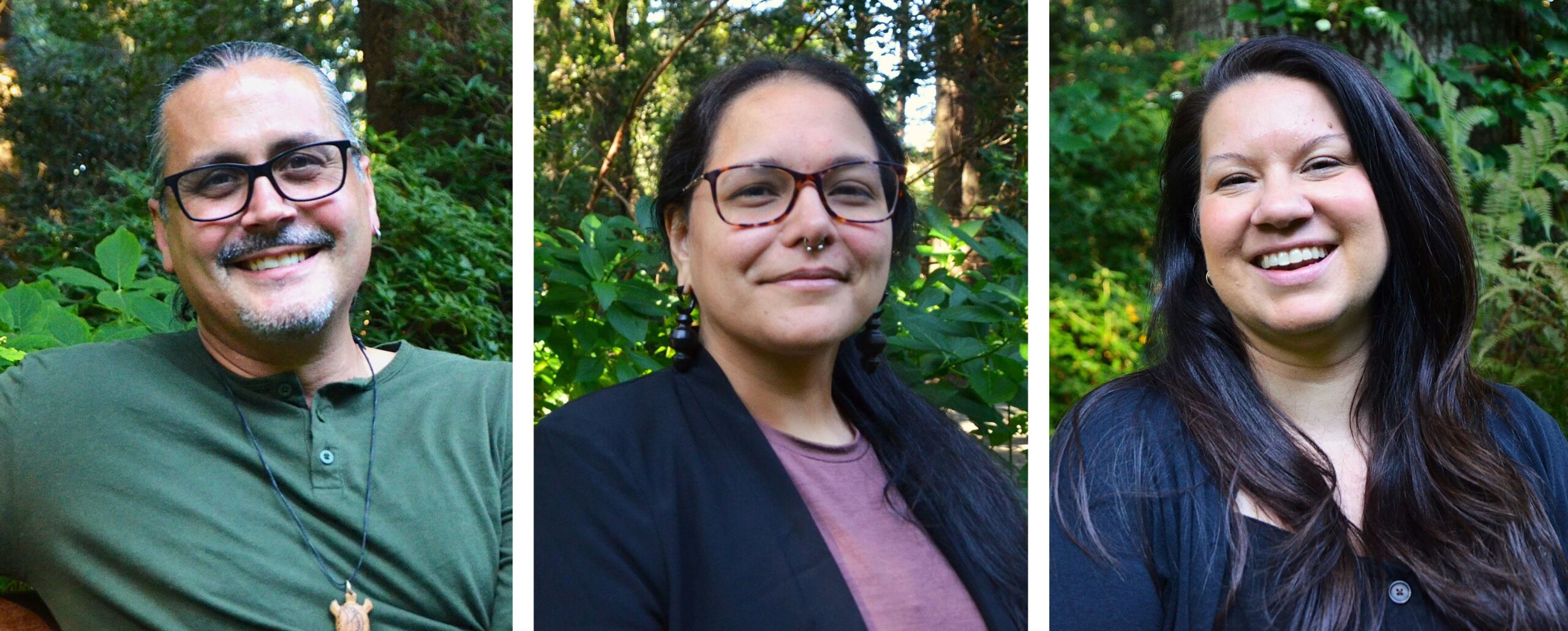Education
University of Victoria Enhances Indigenous Leadership with New Appointments

The University of Victoria (UVic) has appointed three new associate deans Indigenous (ADI) to its faculties of Law, Fine Arts, and the Gustavson School of Business. This initiative forms a crucial part of UVic’s Indigenous Plan—Xwkwənəŋistəl | W̱ȻENEṈISTEL | Helping to move each other forward—and aims to integrate Indigenous perspectives and governance into the university’s academic structures and curricula.
Paul Whitinui, special advisor to the vice-president Indigenous, emphasized the importance of these appointments, stating that they reflect a joint commitment to uphold ʔetalnəwəl | ÁTOL,NEUEL | respecting one another’s rights and fostering positive relationships. The newly appointed ADIs are expected to play pivotal roles in curriculum reform, faculty hiring and evaluation processes, and mentorship for Indigenous students. Their leadership is designed to enhance engagement with local Indigenous Nations and support a thriving environment for Indigenous students and faculty.
New Leadership Roles for Indigenous Perspectives
The creation of these roles is a collaborative effort between the Office of the Vice-President Academic and Provost and the Office of the Vice-President Indigenous. These positions align with the 2022–2025 Collective Agreement, which recognizes the necessity for Indigenous-led leadership within the university. The first ADI position was established in the Faculty of Graduate Studies, filled by Devi Dee Mucina.
Whitinui remarked, “These new roles aren’t symbolic—they’re transformational. They reflect a shift toward Indigenous governance and knowledge-sharing that is shaping the future of post-secondary education in Canada.”
Françoi Bastien, now serving as the ADI at the Gustavson School of Business, has been a faculty member since 2020. A member of the Huron-Wendat First Nation, he brings five years of leadership experience. Bastien aims to enhance Indigenous leadership at UVic through support for curriculum reform and engaging with local Nations.
In the Faculty of Fine Arts, Danielle Geller, a Navajo writer and professor in the Department of Writing, is leading discussions on reconciliation and representation in the arts. Geller emphasizes a relationship-centered approach to her role, focusing on community connections and supporting Indigenous students and staff.
The Faculty of Law welcomes Sarah Morales (Su-taxwiye), who has made history as the first Associate Dean Indigenous. A member of the Cowichan Tribes, Morales is dedicated to advancing Indigenous legal traditions and human rights. Her research is rooted in the laws and teachings of the Coast Salish peoples, aiming to strengthen Indigenous governance and recognition of inherent rights.
Building a Future of Inclusion and Respect
The focus on these leadership roles underscores a significant movement within UVic towards inclusivity and respect for Indigenous knowledge. Devi Dee Mucina, who serves as the ADI for Graduate Studies, brings expertise in community-based research and social justice. His background in Sociology and Equity Studies from the Ontario Institute for Studies in Education at the University of Toronto further enhances the university’s commitment to equitable systems.
The establishment of ADIs across various faculties marks a transformative shift in the landscape of post-secondary education in Canada. Through these roles, the University of Victoria is striving to ensure that Indigenous students, faculty, and staff are recognized, respected, and able to thrive in an environment that reflects their identities and values.
-

 Education3 months ago
Education3 months agoBrandon University’s Failed $5 Million Project Sparks Oversight Review
-

 Science4 months ago
Science4 months agoMicrosoft Confirms U.S. Law Overrules Canadian Data Sovereignty
-

 Lifestyle3 months ago
Lifestyle3 months agoWinnipeg Celebrates Culinary Creativity During Le Burger Week 2025
-

 Health4 months ago
Health4 months agoMontreal’s Groupe Marcelle Leads Canadian Cosmetic Industry Growth
-

 Science4 months ago
Science4 months agoTech Innovator Amandipp Singh Transforms Hiring for Disabled
-

 Technology4 months ago
Technology4 months agoDragon Ball: Sparking! Zero Launching on Switch and Switch 2 This November
-

 Education4 months ago
Education4 months agoRed River College Launches New Programs to Address Industry Needs
-

 Technology4 months ago
Technology4 months agoGoogle Pixel 10 Pro Fold Specs Unveiled Ahead of Launch
-

 Business3 months ago
Business3 months agoRocket Lab Reports Strong Q2 2025 Revenue Growth and Future Plans
-

 Technology2 months ago
Technology2 months agoDiscord Faces Serious Security Breach Affecting Millions
-

 Education4 months ago
Education4 months agoAlberta Teachers’ Strike: Potential Impacts on Students and Families
-

 Science4 months ago
Science4 months agoChina’s Wukong Spacesuit Sets New Standard for AI in Space
-

 Education3 months ago
Education3 months agoNew SĆIȺNEW̱ SṮEȽIṮḴEȽ Elementary Opens in Langford for 2025/2026 Year
-

 Technology4 months ago
Technology4 months agoWorld of Warcraft Players Buzz Over 19-Quest Bee Challenge
-

 Business4 months ago
Business4 months agoNew Estimates Reveal ChatGPT-5 Energy Use Could Soar
-

 Business4 months ago
Business4 months agoDawson City Residents Rally Around Buy Canadian Movement
-

 Business4 months ago
Business4 months agoBNA Brewing to Open New Bowling Alley in Downtown Penticton
-

 Technology2 months ago
Technology2 months agoHuawei MatePad 12X Redefines Tablet Experience for Professionals
-

 Technology4 months ago
Technology4 months agoFuture Entertainment Launches DDoD with Gameplay Trailer Showcase
-

 Technology4 months ago
Technology4 months agoGlobal Launch of Ragnarok M: Classic Set for September 3, 2025
-

 Technology4 months ago
Technology4 months agoInnovative 140W GaN Travel Adapter Combines Power and Convenience
-

 Top Stories3 months ago
Top Stories3 months agoBlue Jays Shift José Berríos to Bullpen Ahead of Playoffs
-

 Science4 months ago
Science4 months agoXi Labs Innovates with New AI Operating System Set for 2025 Launch
-

 Technology4 months ago
Technology4 months agoNew IDR01 Smart Ring Offers Advanced Sports Tracking for $169










